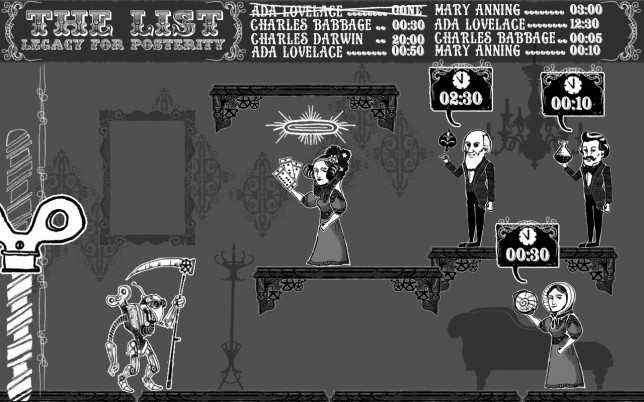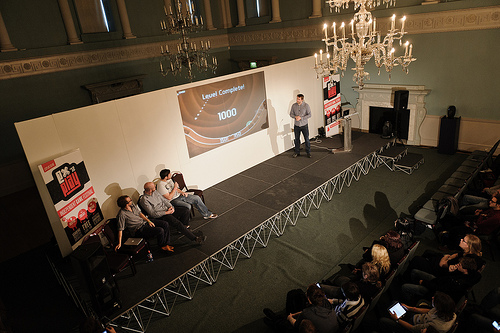Amy from MM on XX Game Jam
/Amy from Media Molecule has written a great blog post all about the XX Game Jam, which is well worth a read:

We made a game called Android Grim Reaper – you play the Grim Reaper and have to find and harvest souls as their timer runs out. About 30 minutes before the end of the jam we didn’t have a game that ran, but with a lot of head scratching, and plenty of ingenuity, we pulled together and got a build limping towards functionality. Of course we were over ambitious, tried to do far too much in the 24 hours available, but that’s half the fun and makes for a tense and exciting finish! We’ll be polishing the game and hopefully in a week or so it’ll still be fun, but will also be vaguely understandable to players other than the dev team :)
It was an awesome day, so inspiring and a lot of fun! I’m pregnant which makes you pretty tired at the drop of a hat, so it has taken a week or so to recover from the late nights, but it was SO worth it. I’ll definitely be GameJamming again soon!
Game Jams are a great way to get experience in making games, and taking part in them is one of our tips for getting into the industry.
If you want to know how to get a job in the games industry, check out our blog post ‘How to get a job in video games’ for tips and info on how our team members all ended up in games.


